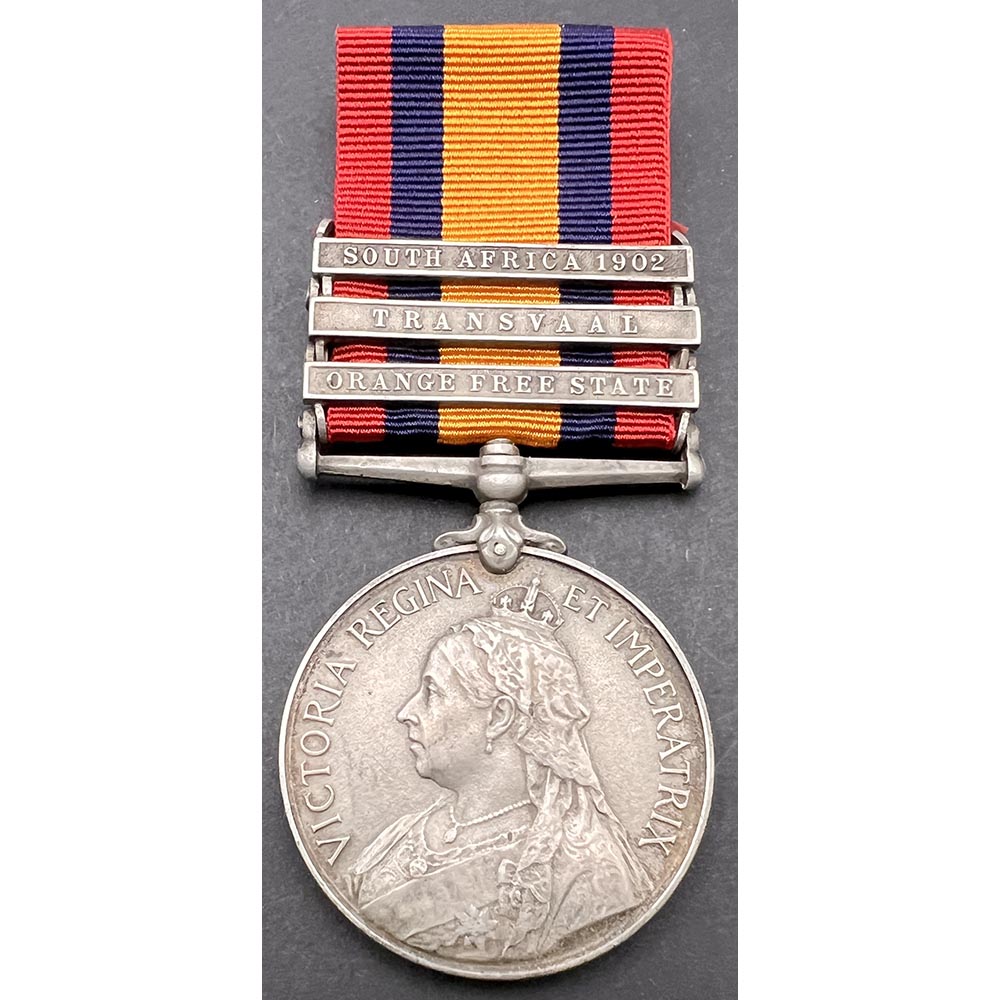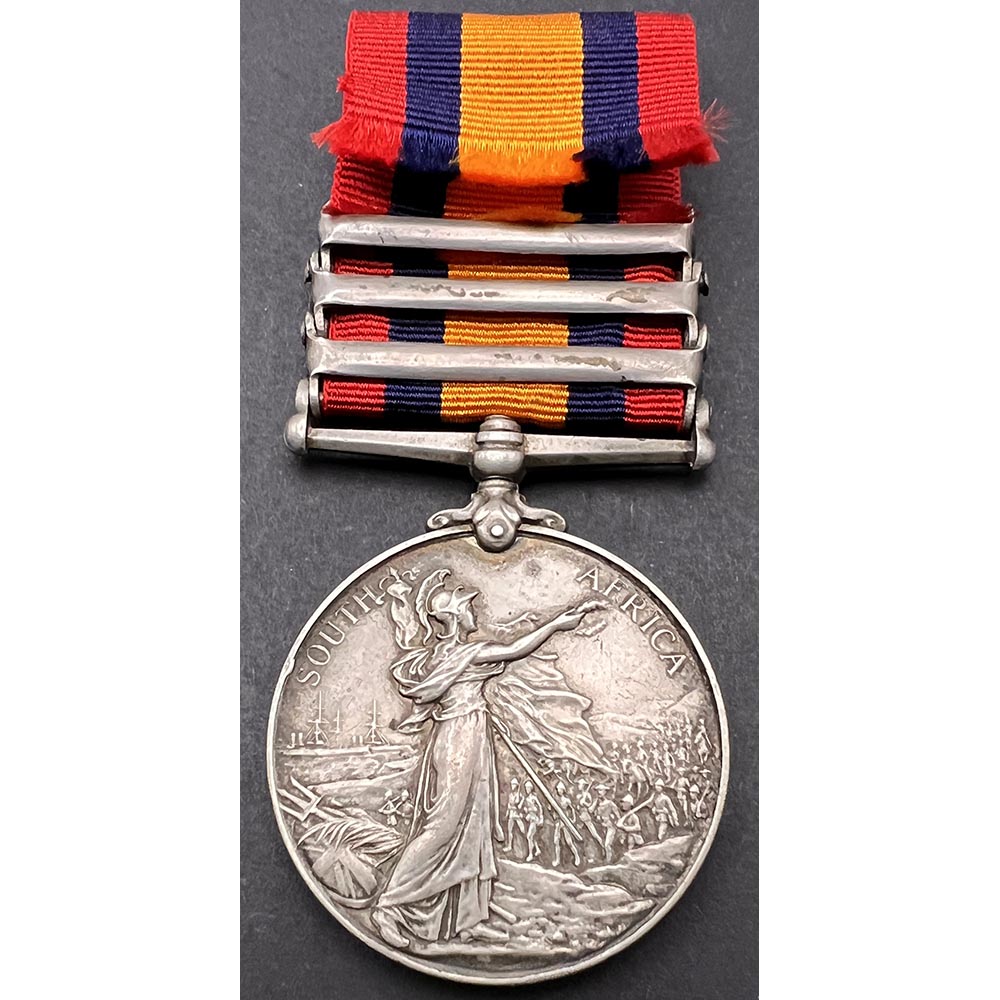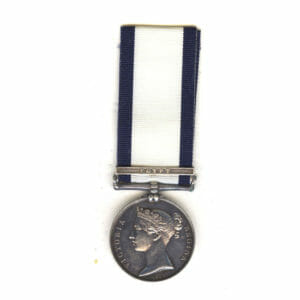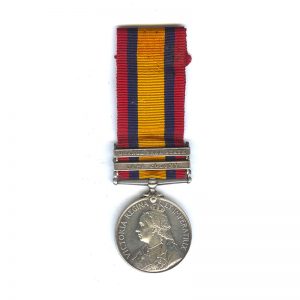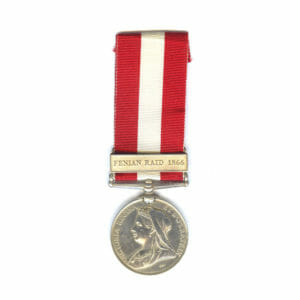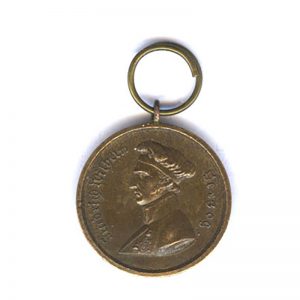Description
Queen’s South Africa Medal, 3 bars, Orange Free State, Transvaal, SA 1902, 5243 Pte Michael Murphy, 2nd Bn Royal Inniskilling Fusiliers. From Glendermott, Londonderry, Derry.
An Irishman who chose to remain in South Africa following the end of the Boer War.
Officially impressed: “5243 Pte. M. Murphy. RL: Innis: Fus:”
Confirmed on the medal roll.
Michael Murphy, was born in Glendermott, Derry, or Londonderry, in what is now Northern Ireland.
On 28th March 1896, 1 Month after turning 18 years old, at Londonderry, Pte Murphy signed up for full time service with the Royal Inniskilling Fusiliers, having been a member of the 5th Royal Inniskilling Fusiliers Militia.
He saw the following service:
Home, 28th March 1896 – 28th February 1898.
India, 1st August 1898 – 23rd January 1902
South Africa, 24th January 1902 – 11th June 1903.
As a member of the 2nd Battalion, they were stationed in India but there were services were required in South Africa, the following is a summary of their service from Angloboerwar.com:
Angloboerwar.com Royal inniskilling Fusiliers
The 2nd Battalion arrived in South Africa from India at the close of 1901. They were sent to operate in the Pietersburg district under Colonel Colenbrander, and did good service there.
In his telegram of 13th April 1902 Lord Kitchener said:
"Beyers' laager having been located at Palkop, the force under Colonel Colenbrander moved by different routes from Pietersburg so as to block all the principal outlets.
The march was successful, and at 3 pm on the 8th a half-battalion of the Royal Inniskilling Fusiliers, led by Colonel Murray, attacked the entrance to Molipspoort, covering the enemy's position. The Royal Inniskilling Fusiliers advancing magnificently in the face of opposition, and making skilful use of cover, by dusk had seized a hill to the east of Poort".
In the fighting on the 8th and 9th 1 officer was killed, 3 officers and 5 men wounded. Two officers gained mention in despatches for good work on this occasion.
He had served a total 7 years 76 days, when he chose to take his own discharge, which cost him £18-11-11 at the time paid to the Army Pay office in Pretoria on 15th June 1903.
Nearing the end of his terms of engagement, but liable for further years of service in the Army Reserve, he had chosen to take his discharge before he was sent back to Ireland to remain there.
Perhaps he was taking his chance at love, as almost exactly a year later, he married a local girl called Emma Salisbury Ruthven, from Griqualand West in Potchefstroom.
He settled in South Africa and later died on 11th December 1916, he had been recently working as a Platelayer with South African Railways.
